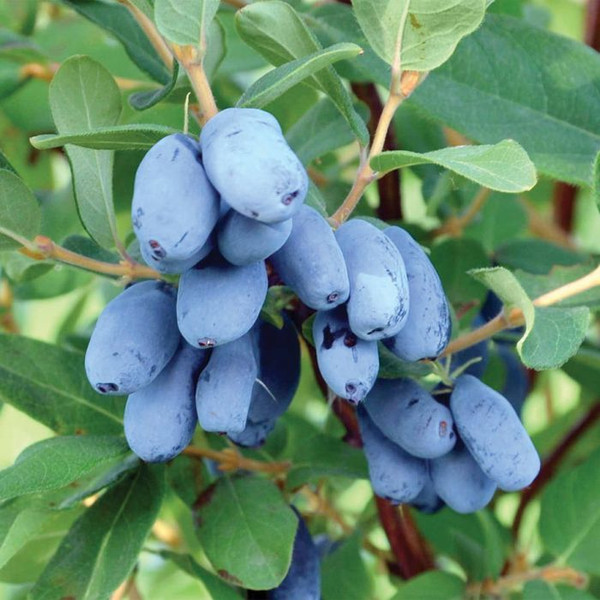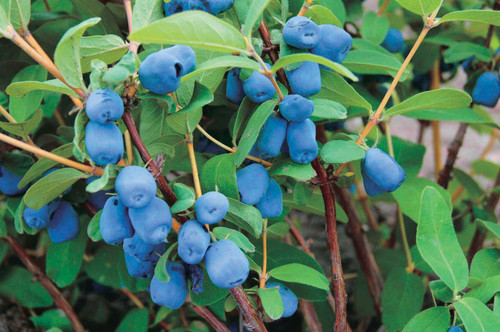Product Overview
Spring Planting: we begin shipping in late April through May beginning with the warmest hardiness zones, so you receive your products at the proper time for planting.
Unique, tart flavour compares to a cross between blueberries and raspberries, but really is unique. These exciting new haskaps have bigger berries, bigger plants, all with great flavour. They extend the season, with harvest ranging from early July into mid August. Boreal Beast is late maturing with large fruit. Beauty can pollinate both Blizzard and Beast, but Beast and Blizzard will not pollinate each other as their bloom times do not always overlap. Will begin bearing fruit in 2-3 years. Birds also love the fruit, so Black Netting is recommended. Hardy to Zone 2. Will grow 5 to 6 feet. 2" plug.
Planting:
For individual bushes, plant 4-6’ apart and for a hedge row 3’ apart. Plants will arrive in a root ball and can be planted 1-2” deeper than the original depth (look for soil mark on stem) to compensate for heaving and to help develop a deeper root system. Water right after planting. Haskap, also known as Honeyberry, are hardy to zone 2 and can be planted in spring or fall.
Growing:
Shrubs grow 4-6’ tall and wide and require two varieties in order to produce fruit. Pollinator variety can pollinate up to 7 or 8 females. They prefer full sun and well-drained soil but will grow in wet soil and have a wide pH range of 5-8. Ensure the soil is adequately moist for the first few growing seasons. Grow them in a sunny spot where they will get at least 6 hours of full sun.
To keep shape prune in late winter or early spring and thin out older branches when shrub gets too dense. Bushes can often bear a few fruit 1 year after planting but yield abundantly once 2 to 3 years old. Berries ripen in June and the flavour improves if the fruit is left longer on the bush. Fruit take a long time to ripen so bite a few berries and if the centers are green they aren’t ready. Mature shrubs can yield up to 5-7 kilos per plant. Fruit can be used the same way as blueberries.
Pests:
Haskaps have few pests and diseases other than being eaten by birds, deer and mice. Bird netting is recommended. Powdery mildew may be a problem on some cultivars.







